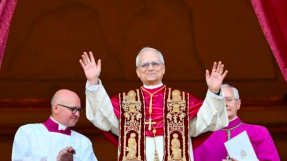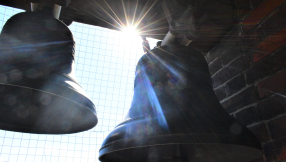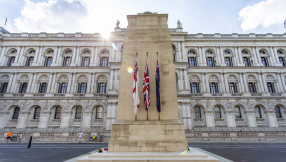
After years of economic uncertainty, a seemingly endless war on terror, and moral decline, the West is in crisis, argues Ben Ryan, head of research at the think tank Theos.
He maps out this decline in his new book, How the West Was Lost, but also charts a possible way forward that can breathe new life into our struggling Western societies.
While the Church, too, has undoubtedly struggled in recent decades, he believes it still has a crucial role to play in the resurrection of the West.
He speaks to Christian Today about why the West has found itself in trouble and where the Church fits into all this.
CT: You argue that the West is a myth. What do you mean by that?
Ben: As a concept, there's nothing geographical about the West; it's an entirely cultural philosophical idea. With that, there has always been this idea that we're on the road to somewhere, whether that's the Kingdom of God if we think in Christian terms, or some kind of political secular utopia.
That has always united the Western political movements, from Marxism to Christian theocracy movements and liberalism. All of them have in common that sense of an end point or dream that they're trying to head towards.
CT: Why do think that this kind of Western 'ideal' has found itself in trouble?
Ben: I think it's difficult to put a specific timestamp on it but in some ways, there's an irony in the fact that having won the Cold War and the 20th century, people since the 90s have been asking: so if we won, is this it? Fascism and communism had both failed, and the West had won, but people were not quite sure what it was they had won.
And whole generations of Western politicians haven't really had a good answer to that question. A classic example of that is an organisation like the EU that started off in the 1950s as a European project with a phenomenal sense of its own moral mission. But over time, that just sort of faded away and it became an economic-technocratic thing, and people started asking: well, what is it actually for?
CT: Do you think that's why we are where we are now with Brexit?
Ben: I think it's certainly a factor. It was a really noticeable feature of the referendum campaign that only one side, the winning side, had a real story.
When I look back at the videos of the Remain campaign, businesswoman Karren Brady was telling us how good the EU was for business. But after years of austerity and economic struggle, people didn't want to hear that the status quo was doing well for big business. They wanted something to believe in; they wanted a story and something that said: you're going through some pain right now but there's a reason for it, you're on the road to something. And they never got that.
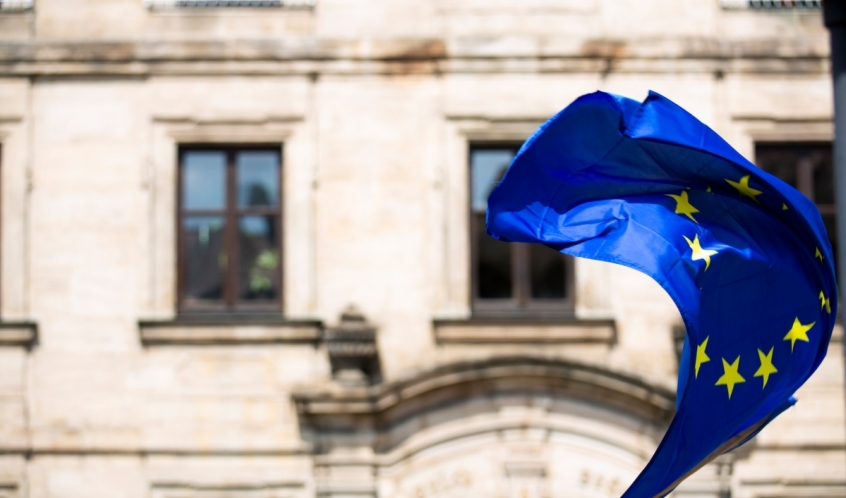
That's not to say I thought the Leave story was great either; it was quite reactionary and backwards looking. But at least it stood for something and people could understand a simple and powerful message.
I think one of the big factors behind Brexit, though, is the inability of our leading politicians to be able to tell us what they really want to see.
CT: What do you think that the legacy of Brexit might be? People seem to be very jaded by politics at the moment.
Ben: I think they are jaded for a good reason but there is still a huge enthusiasm for hope and a hunger for someone who will convey that.
The danger there, of course, is that there have been a few false starts. Barack Obama famously had this vision of hope with his 'yes we can' motto, but even the most optimistic Obama supporter would question how much of his dreams were really followed through on.
It's a similar story with Justin Trudeau in Canada. Again, a huge number of people voted for him because they thought he represented a new fresh hope and they're now a bit disappointed. It looks like it's going the same way with Macron in France.
Two things are needed, though. On the one hand, these campaigns focus on hope and try to motivate people by saying no, there is a positive story, it's not just 'put up walls and shut yourself away, we can aspire to some great new future.' But it has to have some kind of a follow through it can't just be all messaging or good PR spin.
That's where we need both the myth but also the actual content of what it all means. What are the policies that are actually going to make this happen? I think that's where a lot of these hope-inspired campaigns have fallen down in the UK, going right back to Blair.
There can be a good story and a good set of soundbites that people can believe in but there's not the substantive or thorough change we need to sustain that level of optimism.
CT: It's interesting that on the one hand, we have these figures tapping in to a message of hope and on the other, political leaders who have risen up by tapping into fear. What's the right sort of middle road that that our public life should be aiming for?
Ben: In the book I talk about the three big political values: liberty, equality and solidarity, and how these went wrong in the 20th century. Equality was abused by communism because it became so extreme in its commitment to equality that it killed off the freedom of the individual and the solidarity of group identities like nation and church. Similarly, fascism went for solidarity but then it killed off freedom as well as equality.
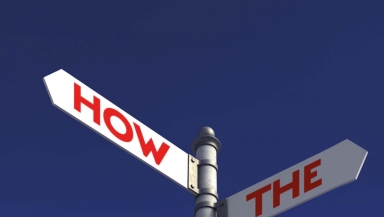
In order to find a middle way through too much hope on one side and fear on the other, we need to combine these three values more constructively.
The kind of populist right that has risen up is playing the same game that we saw in the 20th century, where going for solidarity really means that there is an 'in' group and an 'out' group and the way forward is to only support the 'in' group, and only harass and destroy the 'out' group. That's a really dangerous model.
That's not to say that solidarity isn't hugely valuable and that's the thing that's missing. The politician that is going to be successful at some point is the man or woman who can find a way of combining that positive idea of civil society; of a 'we' and 'us'. I don't think anyone has quite nailed that yet.
CT: What role do you think the decline of Christianity has been in the West losing its way?
Ben: I think we tend to fall into the mistake of thinking that because Western society has become less religious, what we've got in its place is a committed atheistic secularism. And that isn't true.
Although the figures around atheism have gone up, by far the bigger trend is the emergence of this strange universe of values with no unifying feature, and people picking and choosing little bits here and there, and being a bit confused.
That in some ways is worse because it makes it much harder for everyone to be talking the same language. If Christianity had been replaced in a Soviet Union sort of way with a single, ideologically consistent atheism, at least you'd be able to say that everyone had the same value set and you could build something off that.
When you have this kind of chaos of individual choice and a huge proliferation of values, then that makes it much more difficult to bond people together.
But there's a possibility for the Church there to try to rediscover a role, not in the same way it did in the past - I think that era is gone and we're not likely to see that again - but in trying to hold together a conversation about what people's sacred values are and how we get people to have a relationship with each other across differences.
Certainly, in places like the UK, there is still a real role for the Church to play in convening and leading on that, and that in itself might lead more people to Christ. If you can show yourself to be a leader in values, with something to offer, then people might start to think again about the Church.
The danger lies in that chaos of individualism, where we struggle to find any way of even talking the same language with each other, let alone building anything more cohesive.
CT: Is it the end for the West or do you think there is a compelling vision that people can buy into, especially the young?
Ben: I think we're at a critical moment where it could genuinely go either way. I think if it does all collapse, it won't be a sudden or dramatic failure like the Soviet Union, when that and the communist world all came crashing down in the space of about three to four years.
I think with the West, it will be a slower process, one which is really about forgetting; a kind of drifting away where people keep thinking that as long as you can keep the status quo and keep the economy up, people will come back round.
I think that is fundamentally naive. We need to stop making the mistake of thinking, well, if we just fix this mistake or that mistake, we can win people back.
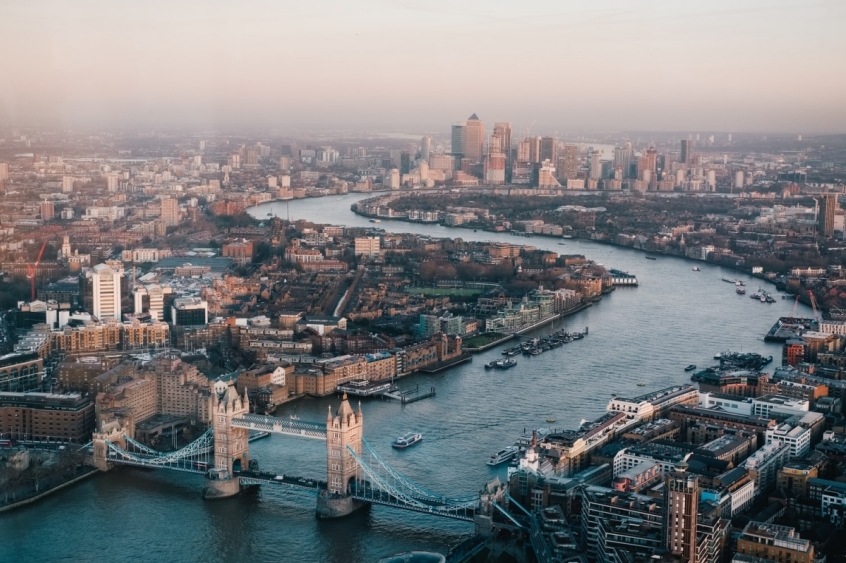
We need to find something that really motivates people. What that myth is, I think, is the huge question and in a sense it's really difficult to predict because these things can swell up suddenly.
Take the environmental issue, for example. There's a really interesting set of data about the US, where environmental politics is an incredibly partisan issue. But even there, young Republicans are far more in favour of taking radical action on things like fossil fuels than people who are older than them.
There's a very powerful, compelling story in Christian language around the ideas of redemption and salvation; the idea that we have caused something to our world and we have the opportunity to save it.
It's a very powerful story and one which, of course, comes with pain because there's no way of resolving the crisis we are in without people making sacrifices. But that too in a sense can be spun as a positive when that's how much people believe they can contribute to something bigger.
The changing nature of technology and work means we're going to need a new settlement at some point about what it means to have a society where so much of what we take for granted is done by machines.
There are huge questions around how we build a society that thinks differently about work, leisure and care, and all of those things.
That conversation could provide an opportunity for a person or a movement to really pick up a powerful story for doing something different. Who or what that movement is, is hard to predict.
CT: People like to talk about the Church not being relevant but picking up on this question about machines and redemption, it seems like the message that Christians can bring into conversations like this is more relevant than ever.
Ben: Absolutely, but I think it also goes beyond that and I think it's really important to say that Christianity in the West has played this important role precisely because it's in the origins of so many of our crucial values. You can't really talk about the way in which the West has come to have the ideas of liberty and justice without reference to the Christian origins.
But it's a double-edged sword because what we are seeing is this rise of populist right wing groups that are using and abusing Christian themes, and wanting to lay claim to this kind of Christian heritage for their own ends - ends which I would say are actually antithetical to a lot of what the West has traditionally stood for.
Like Viktor Orban in Hungary, for example. I don't believe he's a sincere Christian. What I do believe is that he thinks that by using Christian myths and ideas, he can secure power for himself. But a lot of the policies are dangerous.

In this context, the Church has a critical role to play because if people are going to try to use our story for their ends, then we need to call that out. When you look at populist right wing movements, churchgoing Christians are some of the least susceptible to those groups. Those who say they are Christian but don't actually go to church are most susceptible to joining those groups.
We have a task to defend our values and say: this is what we really stand for, don't listen to the people who want to use our story for their own ends.










